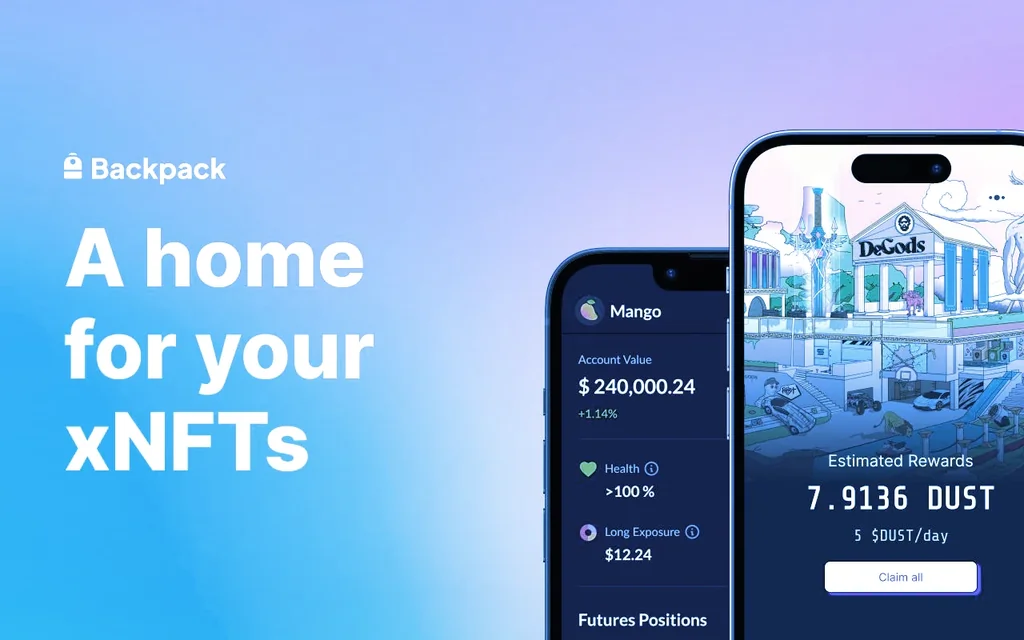The creators of the Anchor development framework for Solana are launching Backpack, a “first-of-its-kind” wallet supporting executable NFTs.
Coral, the developers of Anchor, the popular development framework for the Solana blockchain, announced a strategic funding round of $20 million co-led by FTX Ventures and Jump Crypto.
Other participants in the round include Multicoin Capital, Anagram, K5 Global, and other strategic investors, Coral said in an announcement shared with Decrypt.
Coral said it plans to use the funding to hire new talent with the aim of building a world-class team.
Today’s announcement also comes along with the launch company’s first flagship product called Backpack.
As explained by Coral, Backpack is an “interactive, first-of-its-kind wallet that delivers crypto-native experiences” through the so-called executable NFTs, otherwise dubbed xNFTs.
An xNFT is an executable code of a Web3 application that inherits the ownership qualities of an NFT. By using protocol-agnostic frameworks, xNFT will be creating decentralized apps (dApps) for the NFT ecosystem that can be used from a single interface.
Backpack serves as the operating system used for building xNFTs, essentially being a wallet that manages private keys and opens the gateways to different dApps.
The main idea is that Backpack users can access all of their assets and dApps from a single place, where xNFTs act as native applications—any user with an xNFT in their wallet can launch the application or experience within that xNFT.
“Like a wallet, Backpack manages your private keys and connects to apps. But unlike anything else, it’s asset and protocol agnostic. Everything in the wallet is an xNFT. This is a big deal,” Tristan Yver, co-founder of Coral, told Decrypt.
According to Yver, while most wallets only show your tokens, with some not even showing your precious JPEGs, Backpack “is a home for everything.”
“Backpack is an open, programmable system built for Web3. And like any other application operating system, it has a set of developer frameworks and APIs associated with it, allowing anyone to build their own xNFT apps for any protocol on any blockchain—without permission,” added Yver.
Source : decrypt


